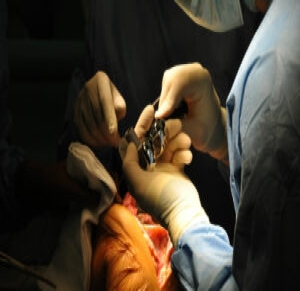About the knee
The knee is made of two main bones and the kneecap as well as ligaments, cartilage and tendons. The meeting point of your kneecap (patella), femur (thighbone) and shinbone (tibia) forms your knee which is bound together by ligaments and meniscal and articular cartilage. The cartilage ensures that your knee parts smoothly move and cushions from damage and pain. Tendons bind your muscles to your knee bones.
What happens in Knee Replacement Surgery?
Knee replacement surgery removes your damaged or worn out knee joint and replaces it. The procedure is also called knee arthroplasty and a prosthetic bone is used in order to help those with severe knee pain and problems get back on their feet and walk around again.
Before the surgery physical evaluations will be done, including verifying that there is not a danger of blood clots as well as urine tests, electrocardiograms (ECGs) and diagnostic tests to ensure the operation will go smoothly.
Types of Knee Replacement
- Total knee replacement (TKR) surgery is between one to three hours in length and replaces both sides of your knee joint.
- While partial knee replacement (PKR) surgery just replaces one side and is for those with a less comprehensive problem.
There are more than 600,000 knee replacement surgeries done annually in the United States and it is a fairly straightforward procedure, although complications can sometimes occur.
Who should consider a knee replacement?
Generally knee replacements are necessary for older patients who have experienced chronic knee problems for years. It is most common for those between 50 to 80. Following the surgery the vast majority – more than 90 percent – of patients will see major alleviation of knee pain and symptoms in weeks after the surgery and the majority of knee replacements last 15 to 20 years and sometimes more.
If you are suffering from arthritis or other chronic knee pain that has resulted in cartilage breakdown then the years of difficulty in walking, bending and doing anything can become overwhelming. It is at this point that considering knee replacement surgery becomes a highly recommended option.
Recovery process
Recovery from knee surgery includes hospitalization for one to three days. You will generally feel a significant amount of pain which can be alleviated through medication. After several days it is recommended to begin walking somewhat and do physical therapy sessions which will help strengthen your knee and make sure the new parts all integrate smoothly into your knee.
Full recovery from knee replacement surgery can take up to three months, although you should be able to drive comfortably after one month or so and work after a-month-and-a-half or two months along with crutches if needed. It’s also recommended not to stand for very long amounts of time during the recovery period since this can put undue strain on your operated knee. At home stair rails, a raised toilet seat and even a home stair lift for staircases can be a great help in the recovery process.
Probable complications
Possible complications of knee surgery include blood clots, nerve damage and a pulmonary embolism which can be very serious. In addition there is the chance of infection and long-term pain or allergic reactions to the bonding agent used to join the new knee replacement as well as excessive bleeding. These complications are rare but are part of why it is so vital to have an experienced and fully-licensed doctor with experience in knee replacement surgery to do the procedure.
Dr. Mahesh Bagwe is a leading orthopedic surgeon at the Orthopedic Center of St. Louis who also serves as a team physician to the St. Louis Cardinals. He has years of experience with knee replacement surgery and his dedicated and professional team has gained a reputation for their world-class knee replacement surgery in St. Louis.
Reach out and contact Dr. Bagwe to find out more about knee replacement surgery and whether it is the right option for you as well as to schedule easy appointments for non-acute knee injuries and problems.






